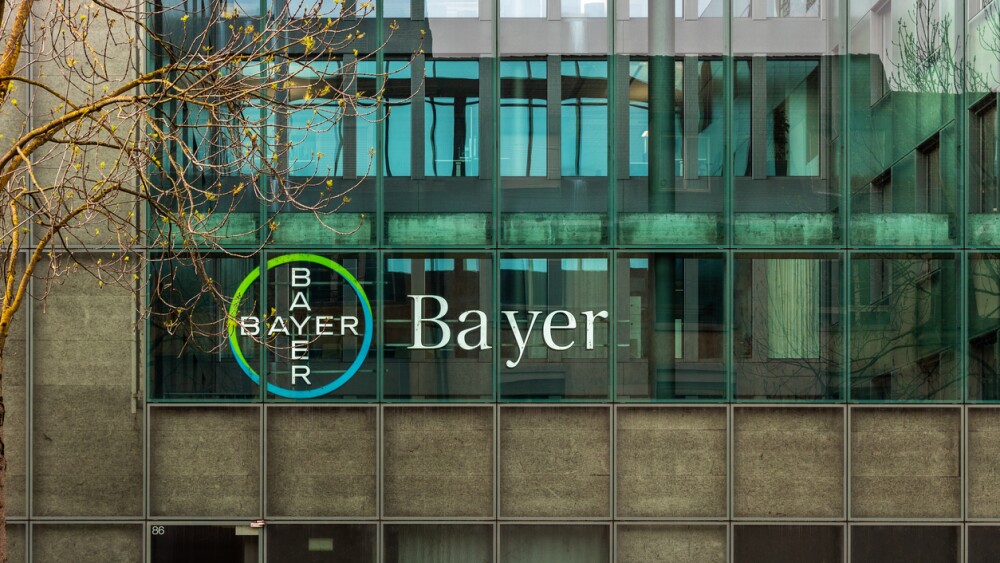Meanwhile, Bayer CEO Bill Anderson said Donald Trump’s Most Favored Nations policy could present an opportunity for European countries to make sure they are also funding their “fair share” of biopharma innovation.
Bayer laid off some 2,000 employees in the first quarter of 2025, CEO Bill Anderson revealed in a media call Tuesday morning, alongside the presentation of the company’s first quarter earnings results.
“We are doing this change in our operating model across the company, in all three divisions”—Pharmaceuticals, Crop Science and Consumer Health—Chief Financial Officer Wolfgang Nickl explained on the call. “There is a very keen focus more on the level of positions that are being reduced, they’re mostly management positions.”
Since first kicking off a sweeping reorganization initiative that began in July 2023, Bayer has let go of some 11,000 employees, Anderson noted on the call. This effort, he added, has made the company “leaner, faster and more productive,” while simultaneously allowing Bayer to free up resources, “so our teams can flow them to the highest-impact work.”
In January 2024, Bayer unveiled a new operating model called Dynamic Shared Ownership (DSO), which the company said would help make it “much more agile.” At the time, Bayer announced that the transition to DSO would involve large-scale layoffs, which it expected to be “completed by the end of 2025 at the latest.”
Central to the DSO model is the thinning out of managerial layers. A few months later, in March 2024, Bayer kicked out nearly half of its masthead, reducing its executive roster from 14 to eight.
As of the end of 2024, Bayer had 92,815 full-time employees across its sites worldwide, as per its annual report.
In the first quarter earnings section of Tuesday’s call, Bayer reported sales that Anderson called “flat year-on-year.” The company brought in €13.738 billion, or around $15.3 billion, in the first three months of 2025 across its divisions, a 0.1% decline from the same period the year prior. Its pharma business remained its strongest unit, growing 4.1% year-on-year to earn €4.548 billion (roughly $5 billion) in Q1.
Bayer’s fastest-growing products in the quarter were the chronic kidney disease therapy Kerendia, which surged 87% year-on-year, and the prostate cancer drug Nubeqa, which jumped 78%. Meanwhile, the company’s anticoagulant Xarelto crashed 31% in the quarter, driven by generic threats in Japan and Europe.
Europe’s ‘Fair Share’
When asked about President Donald Trump’s Most Favored Nations executive order pegging U.S. drug prices to the lowest prices in a comparable nation, which he signed Monday, Anderson pointed to the outstanding uncertainties regarding the policy. “It’s too soon to say,” the CEO told reporters on the call, “there’s a lot of discussion that needs to happen about this.”
Still, Anderson pointed to what he called the “opportunity” for Europe to “look hard” at the situation in the region. Policymakers should “make sure that each European country is also funding its fair share for innovation,” he said, echoing language that Trump used in signing the order, “because that bill should not be falling heavily on one country.”
The U.S., according to Anderson, has long been the world leader in biotech innovation, which in turn has resulted in some of the most impactful medicines. The U.S. has also had what Anderson called a “unique combination” of pricing—the current system, he said, “generally [provides] for patient access” while also “having prices that provide for sustaining that innovation.” Drug pricing policy worldwide should be mindful of these two factors, Anderson explained.
“What’s important,” he continued, “is that policymakers from all the major countries having dialogue about” how to make sure that “we continue to fund advances in cancer, in chronic diseases, so that we don’t lose the benefits for the next generation.”






